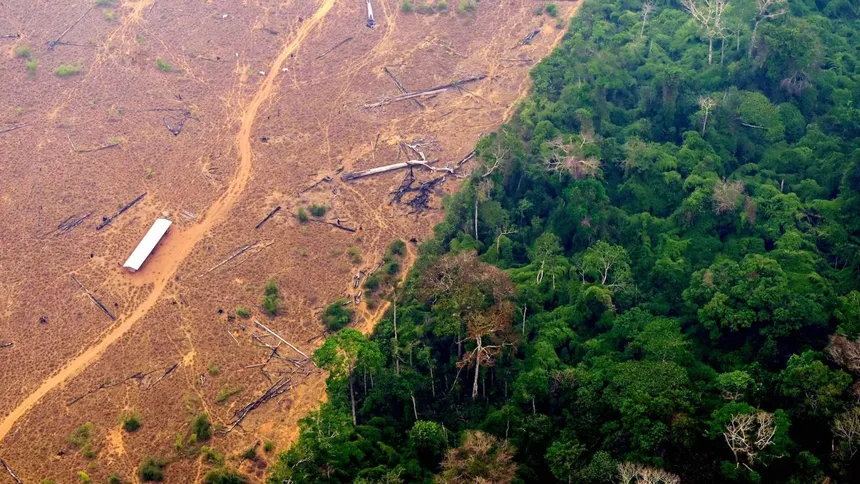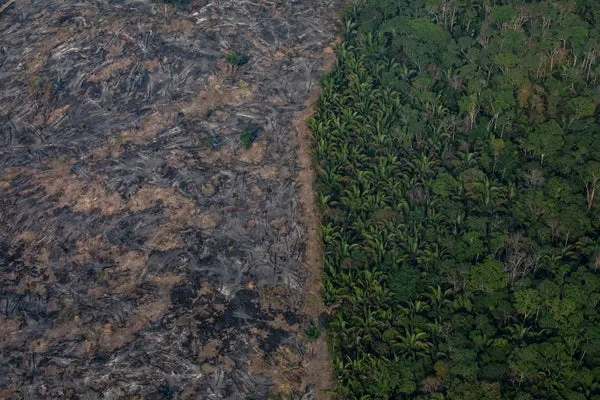In 2023, the Amazon rainforest faced its worst drought on record, and new research suggests that the climate crisis was a major contributor to its severity. Scientists analyzed the data and found that without human-induced global warming, the drought would have been significantly less extreme. They also discovered that the drought was made 30 times more likely to occur due to planet-warming emissions.
The study used peer-reviewed methods to compare droughts in today’s climate, which is 1.2C hotter, with those that would have occurred in a cooler, pre-industrial climate. The results showed that global heating is decreasing rainfall and increasing heat in the Amazon, making the drought more likely to happen.
Regina Rodrigues, a professor at the Federal University of Santa Catarina, Brazil, and part of the World Weather Attribution team, emphasized the importance of protecting the Amazon rainforest. “If we protect the forest, it will continue to act as the world’s largest land-based carbon sink,” she said. “But if we allow human-induced emissions and deforestation to push it through the tipping point, it will release large amounts of CO2. We need to protect the rainforest and move away from fossil fuels as quickly as possible.”
The drought had severe consequences for millions of people in the Amazon, with rivers drying up, drinking water shortages, and power cuts. The destruction of the rainforest also exacerbated wildfires, and high water temperatures led to a mass mortality of river life, including over 150 endangered pink river dolphins.

Simphiwe Stewart, a researcher at the Red Cross Red Crescent Climate Centre in the Netherlands, noted that many communities living in the Amazon had never experienced a drought like this before. “People were forced to make huge journeys, dragging boats over dried-up sections of river, to access food, medicine, and other essential goods,” she said. “It’s critical that government interventions are geared towards supporting communities to prepare for intensifying drought as the climate warms.”
The study also highlighted the devastating impact of deforestation on the Amazon. The clearing of vegetation means the land retains less water, making the drought worse. Recent data shows that the Amazon rainforest is approaching a tipping point, after which the rainforest would be lost with profound implications for the global climate and biodiversity.
Gareth Redmond-King, at the Energy and Climate Intelligence Unit in the UK, underscored the importance of the Amazon rainforest for the global climate, as well as its immediate impact on British food imports. “About half of our food imports come from climate impact hotspots, including Peru, Colombia, and Brazil, which are our top suppliers of bananas, avocados, melons, and other fruit, as well as soya beans for feeding British livestock,” he said. “So climate change’s devastating effects on South America’s farmers last year may well translate into gaps on our supermarket shelves and higher prices for our food.”
The devastating drought in the Amazon rainforest is a stark reminder of the urgent need to protect the forest and reduce global emissions. The consequences of climate change are far-reaching, and it is essential that we take immediate action to mitigate its effects and preserve the Amazon’s critical role in regulating our planet’s climate.

